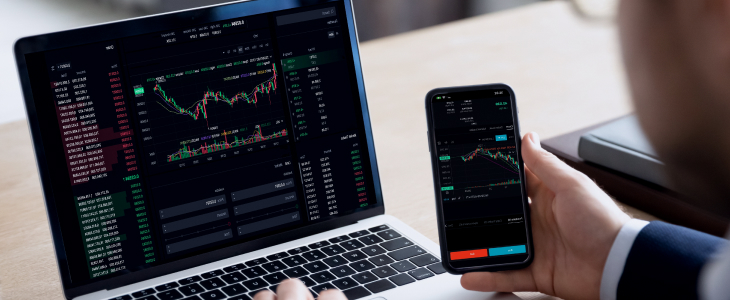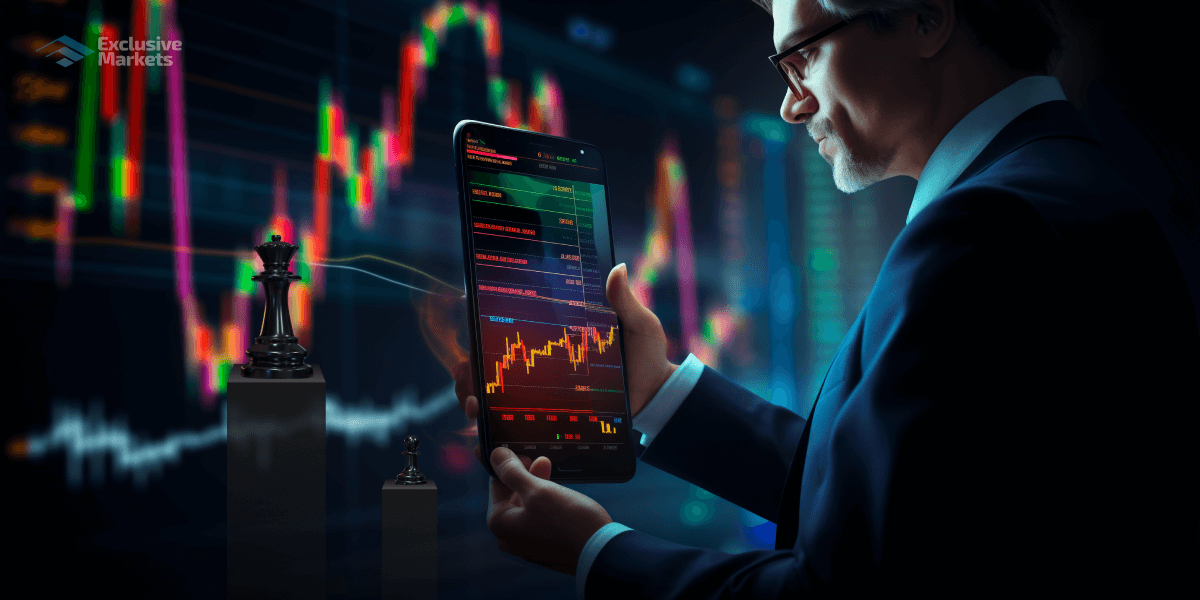Exploring the World of Online Forex Trading

Exploring the World of Online Forex Trading
In today’s fast-paced financial landscape, forex trading online exbroker-turkiye.com has emerged as a popular platform among traders looking to navigate the complexities of forex trading. Online forex trading allows individuals to engage in one of the largest and most liquid markets in the world, offering numerous opportunities for profit. However, the market is not without its risks, and understanding its intricacies is crucial for anyone looking to venture into trading currencies.
What is Forex Trading?
Forex, or foreign exchange, is the process of exchanging one currency for another with the aim of making a profit. It operates over-the-counter (OTC) and involves trading currency pairs, which represent the value of one currency relative to another. For example, in the euro/USD pair, the euro is the base currency, and the USD is the quote currency. Forex trading encompasses a wide range of participants, from individual retail traders to large financial institutions and corporations.
How Does Online Forex Trading Work?
Online forex trading typically involves a broker or trading platform that provides access to the forex market. Traders create accounts with these platforms, deposit funds, and can then use leverage to trade larger positions than their account balance would normally allow. This feature, while helpful in amplifying profits, can also significantly increase the risk of losses.
Choosing a Forex Broker
Selecting the right broker is critical to success in forex trading. It’s important to consider the following factors when choosing a broker:
- Regulation: Ensure that the broker is regulated by a reputable financial authority.
- Trading Platform: Evaluate the trading platform’s usability, features, and tools.
- Spreads and Commission: Compare transaction costs across different brokers.
- Customer Service: Look for brokers with reliable customer support to assist you in times of need.
Essential Tools for Forex Trading
Successful forex trading relies on a variety of tools and resources. Some of the most important tools include:
- Charting Software: Allows traders to analyze historical price movements and identify trends.
- Economic Calendars: Provide information on upcoming economic events that may impact currency prices.
- Technical Analysis Indicators: Tools such as Moving Averages, RSI, and MACD help traders make informed decisions based on price patterns.
- News Feeds: Keeping up with news is vital, as major economic news can lead to price volatility.
Understanding Forex Trading Strategies
Developing a trading strategy is pivotal in forex trading. Some common strategies include:

- Scalping: Involves making numerous trades throughout the day to capture small price movements.
- Day Trading: Traders open and close positions within the same trading day to avoid overnight risk.
- Swing Trading: A strategy aimed at capturing short- to medium-term price moves, typically over several days.
- Position Trading: A long-term strategy where traders hold onto positions for weeks, months, or even years.
The Risks of Forex Trading
While forex trading presents opportunities for profit, it is crucial to understand the associated risks. Some of these include:
- Market Risk: The risk of losing money due to unfavorable market movements.
- Leverage Risk: Trading on margin can amplify both gains and losses.
- Liquidity Risk: The risk of not being able to sell a position due to low market demand.
- Psychological Risk: Emotional trading decisions can lead to poor judgment and losses.
Risk Management in Forex Trading
Risk management is essential in forex trading to protect your capital and mitigate losses. Here are some strategies to manage risk effectively:
- Set Stop-Loss Orders: Automatically close a losing trade at a predetermined price.
- Use a Risk-Reward Ratio: Evaluate the potential profit compared to the potential loss.
- Diversification: Avoid putting all your capital into one trade or currency pair.
- Limit Use of Leverage: Only utilize leverage you can afford to lose.
Building a Trading Plan
Creating a detailed trading plan helps traders stay disciplined and focused. A comprehensive trading plan should outline:
- Your trading goals and objectives.
- Specific entry and exit strategies.
- Details about your risk management approach.
- A schedule that dictates when and how often you will trade.
The Future of Forex Trading
As technology evolves, online forex trading continues to reshape itself. Features like automated trading algorithms, AI-driven insights, and high-frequency trading are becoming more common. Furthermore, the advent of cryptocurrencies and decentralized finance (DeFi) is introducing new dynamics to the financial markets, and forex traders must adapt to these changes to remain competitive.
Conclusion
Online forex trading offers a compelling opportunity for individual traders to participate in one of the largest financial markets in the world. By understanding the mechanics of the market, utilizing effective tools, and developing a solid trading strategy, traders can increase their chances of success. However, it is vital to approach forex trading with caution, continually educating oneself about market developments and refining trading skills. With the right approach and mindset, the forex market can be both profitable and rewarding.